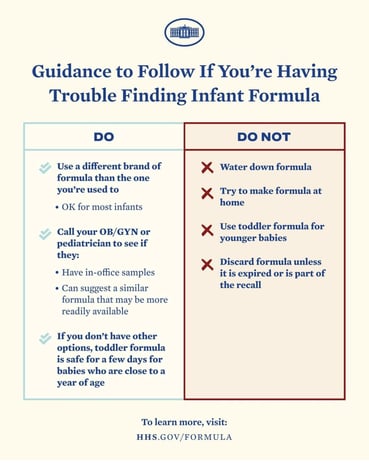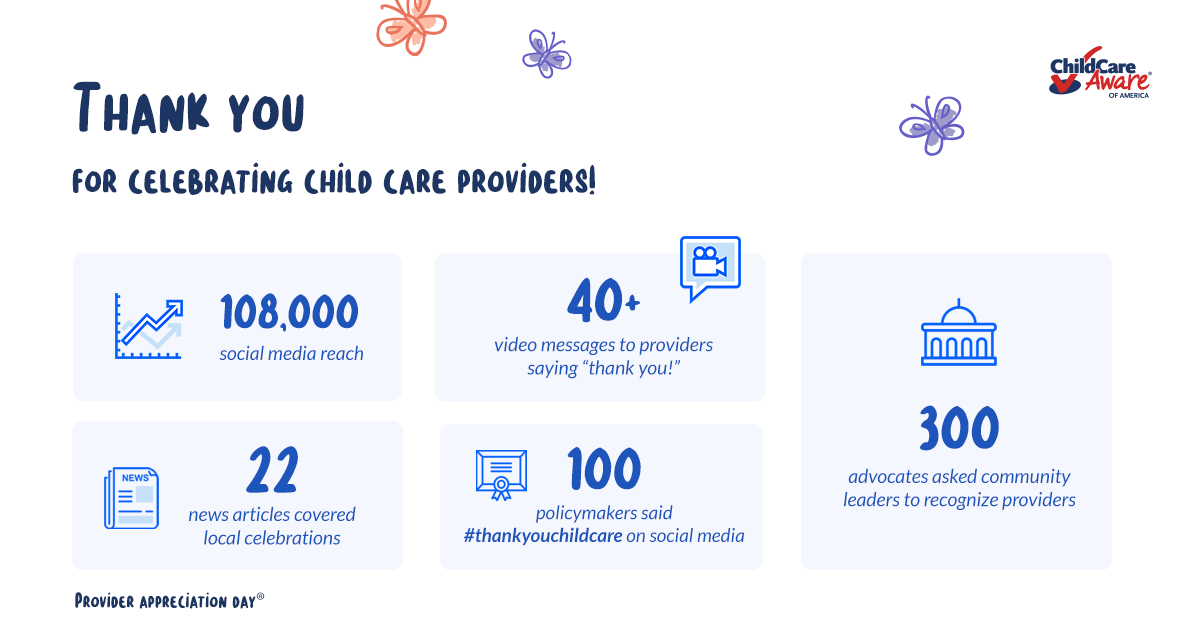Over the past several months there have been shortages in availability of infant formula due to product recalls and supply chain issues. The shortage has placed families and many child care programs in a very stressful situation as they work to ensure young children are fed.
The United States government is working to resolve the shortage. In the interim, child care programs and families may be seeking support in accessing to formula. Below is some basic information on safe practices and tips for accessing formula.

Ensuring Safety
When working with programs and families, ensure the safety of young children. There have been harmful practices circulating the internet as families navigate the stressful situation of trying to access formula to feed their babies. Some important safety rules include:
- Do not dilute formula; over time, infants’ development may be affected since they are not receiving necessary nutrients. In some cases, infants who drink diluted formula can experience water intoxication which creates an imbalance in sodium and electrolyte levels and can be fatal.
- Do not make homemade formula; these recipes are unsafe and should not be used.
- Do not use toddler formula. Infants have different nutritional needs than toddlers and generally should not use toddler formula. (In some cases, toddler formula may be appropriate for the short term for infants close to 12 months but consult a health care provider first.)
- Families should reach out to a health care provider who can answer questions about safety and appropriate short-term alternatives.
Accessing Formula
Many families and child care programs may be struggling to access an adequate supply of formula. The following tips may help:
- For children with special health care needs, families should contact their child’s physician to ask for help in identifying safe formula options.
- In most cases, healthy infants without special health care needs can switch brands without health concerns. This includes generic brands. It is possible the infant may take a few feedings to adjust to the new taste, but this is perfectly safe. All formula sold in the United States meets nutritional guidelines for infants.
- Reach out to your pediatric provider and/or obstetric provider to ask if they may have samples.
- Connect with Community Resources:
-
-
Locate the nearest Community Action Agency (CAA). Neighborhood CAAs may be able to provide families with formula or connect them to local agencies that have formula in stock.
-
Call 211 : In many areas, United Way’s 2-1-1 connects people to community resource specialists affiliated with United Way who may be able to help find food pantries and other charitable sources of local infant formula.
-
Find an accredited milk bank through the Human Milk Banking Association of North America that distributes donated breast milk to mothers in need. Some may require a prescription from a medical professional.
-
For more information:
For tools and resources to help families find formula, go to www.hhs.gov/formula .
American Academy of Pediatrics, With the baby formula shortage, what should I do if I can't find any?
Administration for Children, Youth and Families, ACF Response to the National Formula Shortage





